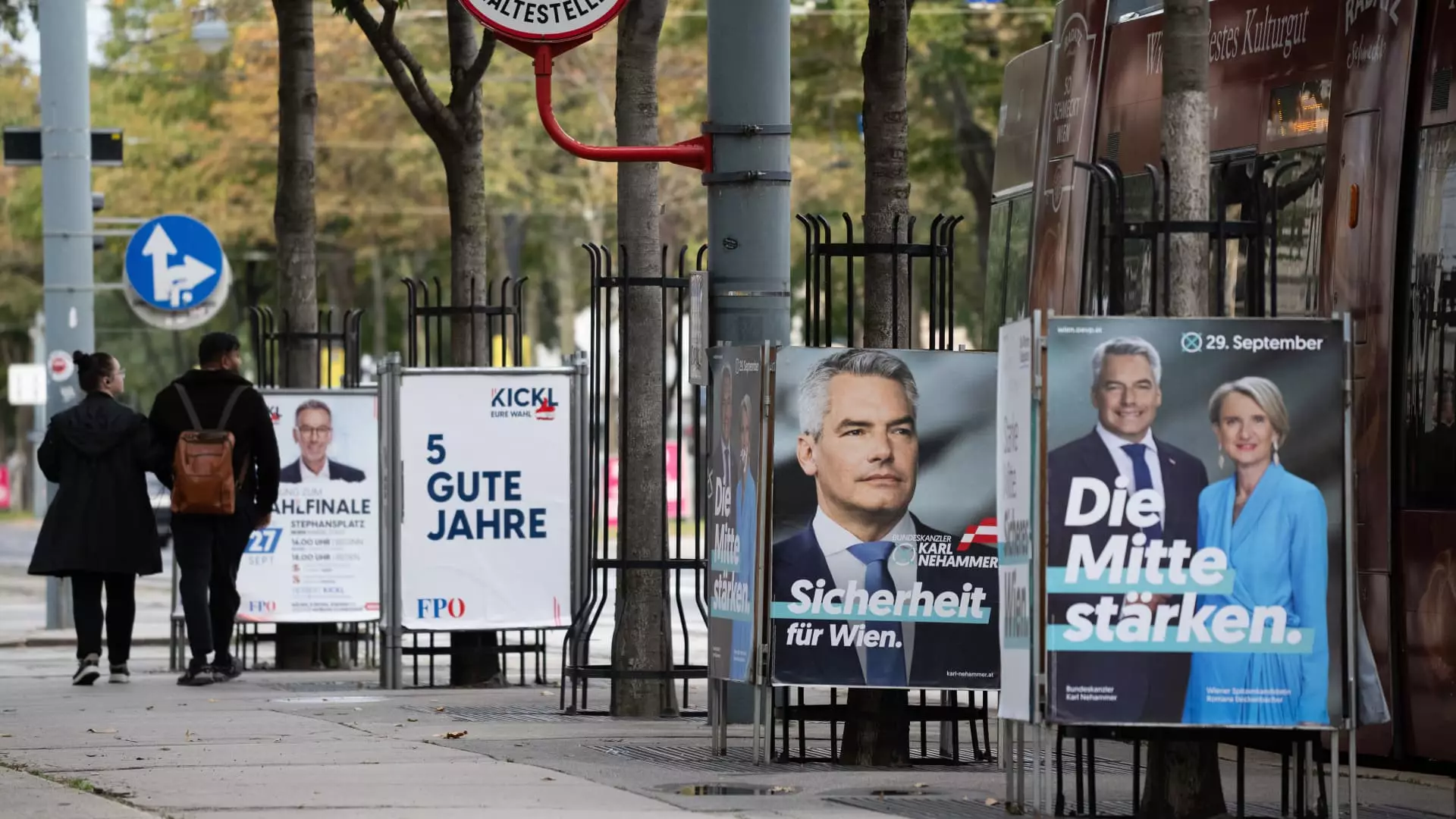In a startling electoral outcome, Austria has witnessed the ascendance of a far-right party that was initially formed by individuals with ties to the Nazi regime. The Freedom Party of Austria (FPÖ) secured 29.1% of the vote in the recent election, outpacing the ruling Austrian People’s Party (ÖVP) which garnered 26.2%. This surprising result illustrates not just a significant shift in Austria’s political horizon but also echoes a broader trend of far-right movements gaining momentum across Europe. As the Social Democratic Party of Austria trailed behind with 20.4%, the political arena is set for potentially transformative and contentious developments.
The electoral success of the FPÖ is emblematic of an alarming surge in anti-immigrant sentiments and nationalism that have permeated European politics in recent years. This party, which faced a major setback following a corruption scandal that led to a collapse in its coalition government in 2019, has managed to rebound significantly. The FPÖ’s leadership, under Herbert Kickl, has astutely harnessed widespread discontent stemming from inflation and the ongoing migration crisis, positioning the party as a beacon for those disillusioned by the mainstream political discourse surrounding these issues.
Kickl’s platform centers on a radical reformation of Austria’s immigration policies, emphasizing a stance that could see the deportation of “unwanted strangers.” Such rhetoric plays into the fears and anxiety of a populace that is reacting to a perceived loss of cultural identity amidst waves of migration from war-torn regions and oppressive regimes. The FPÖ’s message is resonating with a populace that grapples with consequential social and economic challenges, showcasing an unsettling trend towards legitimizing xenophobia in political dialogue.
Despite the apparent electoral victory, the FPÖ’s inability to secure an absolute majority presents a significant hurdle. The potential for coalition-building appears grim, as most major parties have signaled their reluctance to align with the far-right group. This could usher in a period of instability within the Austrian political framework, reminiscent of similar electoral cycles across Europe where extremist parties have gained ground but struggled to establish governing coalitions.
Moreover, the previous alliance between the FPÖ and the ÖVP, which ended in scandal not too long ago, casts shadows on the feasibility of a renewed partnership. Current Chancellor Karl Nehammer, the leader of the ÖVP, has been firm in his stance against collaborating with Kickl’s party, complicating the path forward for the FPÖ even further. This political ambiguity not only hampers Austria’s governance but generates uncertainty that could ripple throughout the European Union, especially as countries grapple with their rightward shifts.
The implications of this electoral outcome extend beyond Austria’s borders, particularly considering the party’s pro-Russia leanings. The FPÖ has expressed a desire to terminate support for Ukraine amid its ongoing conflict with Russia, alongside advocating for the repeal of sanctions against Moscow. These positions present a stark contrast to the European Union’s current stance and signal a potential reorientation of Austria’s foreign policy that could embolden similar movements across the continent.
Austria, historically a central player in European diplomacy and mediation, now faces the daunting challenge of navigating its identity on the global stage. With its neutral stance—eschewing definitive alliances with NATO or Russia—it has been a crucible for international diplomacy. Yet, the rise of a far-right government rooted in extremist ideologies threatens to undermine this neutrality, potentially drawing Austria into the vortex of European geopolitical machinations.
The emergence of the FPÖ as Austria’s leading political force starkly reflects a growing trend of far-right populism across Europe. The party’s appeal to nationalism, combined with its historical ties to extremist ideologies, raises grave concerns about the potential normalization of far-right rhetoric and policies. As political landscapes shift and new alliances form, the implications of Austria’s elections demand vigilant scrutiny. For the sake of democracy, social cohesion, and international stability, proactive engagement by civil society and moderate political factions becomes crucial in confronting and mitigating the risks posed by such movements.


Leave a Reply